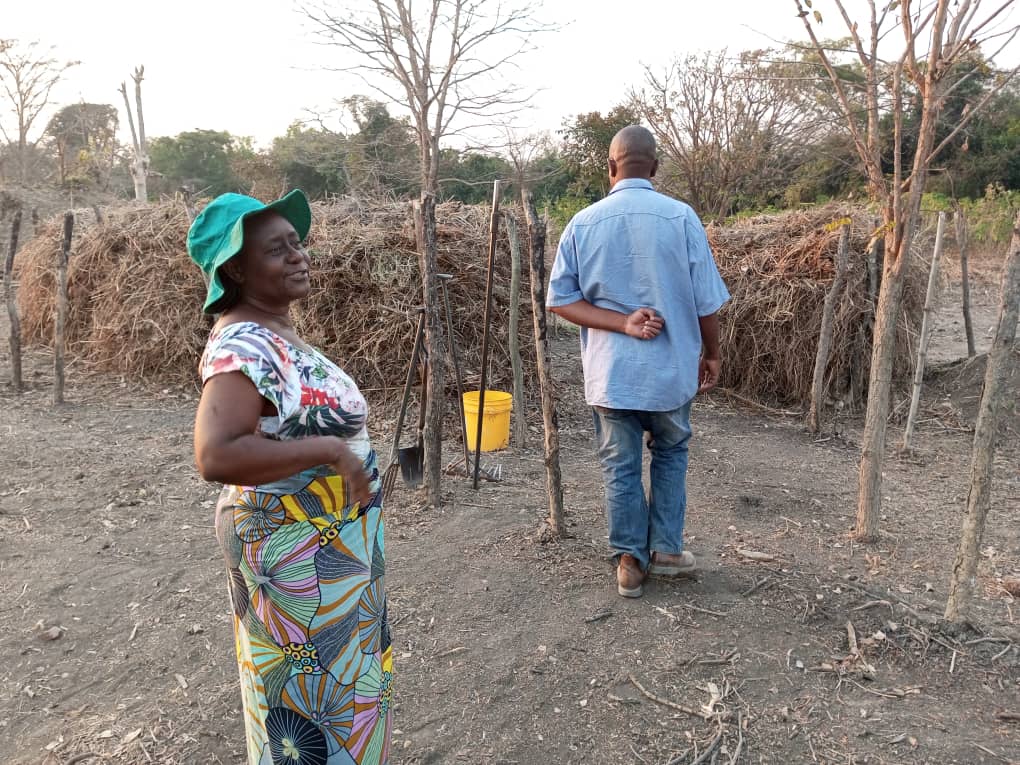To make compost manure and organic fertilizer through the practice of sustainable agricultural system of practicing, livestock, bee keeping and a horticulture
Compost manure and organic fertilizer

The problem at that this initiative seeks to address is twofold with the first being health and nutrition based on the fact that in the recent past, there has been an increase in Non communicable diseases (NCDs) such as hypertension (BP), Diabetes, Cancer, Asthma, etc and the second being the rampant deforestation is which is depleting precious forest resources, causing habitat loss and disrupting local ecosystems and the widespread reliance on inorganic or chemical fertilizers is contributing to greenhouse gas emissions and soil degradation. In this context, the initiative aims to provide an alternative solution by promoting eco-farming practices, such as agro-forestry and the use of organic fertilizers, to mitigate deforestation, reduce the environmental footprint of farming, and empower farmers with sustainable techniques that enhance both their yields and income. Through education and the establishment of a training hub, this initiative seeks to catalyze a positive shift toward more environmentally friendly and economically viable agricultural practices in Zambia.
This eco-farm initiative which is led by Mr. and Mrs Chibesa, utilizes goats to produce organic urea and compost manure from goat droppings, leaves, grass, and water as environmentally friendly fertilizers. These cost-effective alternatives replace inorganic fertilizers like D compound, offering a sustainable approach for horticulture projects and gardening. The target market includes marketeers and community members seeking organically grown fruits enriched with natural nutrients from composted manure. Unique to this initiative, there is no direct competition, setting it apart with its holistic eco-farm approach, which includes livestock and beekeeping, facilitating pollination in the orchard and promoting sustainable, eco-friendly agriculture.
This eco-farm initiative has had a significant impact, with 50 direct beneficiaries, including trained farmers and community members, both within and outside Mpongwe district.
The feasibility of this initiative is strongly supported by the availability of technical resources and a well-established solution. The initiative possesses essential training materials, farming equipment, and access to adequate land. Moreover, it benefits from a workforce of trained individuals and a committed family, ensuring the capacity to carry out agricultural activities effectively. The enterprise and its sustainable agriculture approach are well-established, having been in existence for 18 years since 2005. Fruit harvesting began in 2009, and sustainable agriculture was adopted in 2012-2013, with a decade of successful practice.
Economically, the initiative demonstrates high viability. The cost-benefit analysis favors the business significantly, as the output surpasses the input costs. A key advantage is the reliance on locally sourced materials for growth and production, eliminating the need to purchase expensive fertilizers and insecticides. Furthermore, the horticulture project's production cycle is notably efficient, yielding fruits three times a year, compared to the typical once-a-year production cycle. This productivity boost contributes to its economic sustainability.
In terms of legal compliance, there is no mention of any conflicts with legal requirements such as zoning or media restrictions. However, the presence of well-established legal frameworks that regulate and support sustainable agriculture would be beneficial, ensuring that the initiative operates within a supportive legal context.
The level of experience within the enterprise is substantial, with nearly two decades of operation. This extensive experience includes a decade of sustainable agriculture practices, demonstrating a commitment to continuous improvement and innovation. Overall, the feasibility of this initiative is underpinned by its robust technical resources, economic viability, and well-established experience in sustainable agriculture.
Potential for scaling
The potential for scaling this initiative is highly promising on multiple fronts. Firstly, it can scale deep by conducting continuous training and mentorship programs, extending beyond Mpongwe district to reach farmers in other regions of Zambia. This approach creates a network of communities of practice dedicated to sustainable agriculture, empowering more farmers to adopt eco-friendly farming methods and promote environmental conservation while expanding economic opportunities.
Secondly, there is significant potential for scaling up through policy advocacy and legislative support. Collaborations with relevant government bodies and organizations can drive policy changes that prioritize and invest in sustainable agricultural solutions. This can lead to a broader and more profound impact, influencing the agricultural landscape across Zambia.
Thirdly, the initiative can also scale out by replicating its successful model in different contexts and regions. Partnerships and collaborations with organizations and communities interested in adopting similar practices can facilitate this expansion. Access to infrastructure and resources, along with knowledge sharing, will enable the initiative to promote eco-friendly farming in diverse settings, contributing to a wider transformation of agricultural practices.
The government has taken a stance to scrap of the farmer input support programme (FISP) which might reduce dependency support from Government likely to create demand for locally made compost manure which has also proven to yield better results than the chemical fertilizer. The other opportunity comes with the high demand for honey which is also part of the products which the initiative produces.

